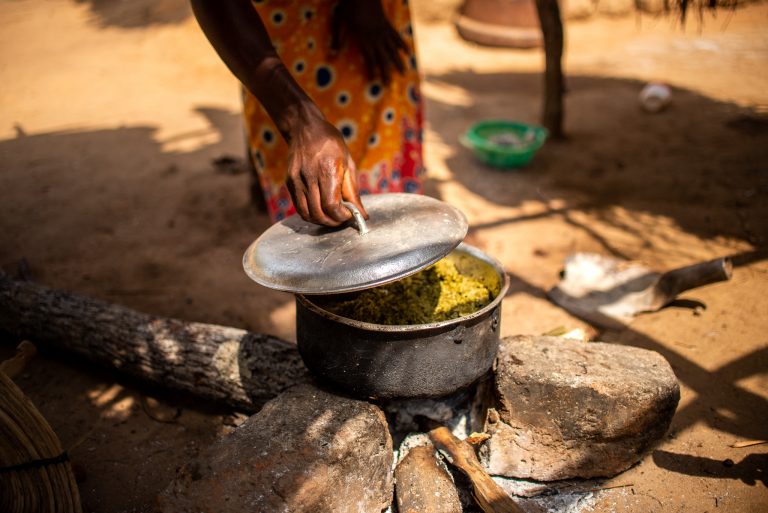On April 5, the International Committee of the Red Cross (ICRC) reported that almost a quarter of Africans are suffering from the worst hunger crisis to hit the continent since 2017.
As humanitarian aid is being bolstered to help those in need, several factors have contributed to the starvation of millions.
Continent struck by hunger
Throughout Africa, around 346 million people are facing “severe food insecurity”, culminating in the worst known crisis since 2017, Reuters reported.
Between 2015 and 2022, cases of hunger in West Africa rose from seven million to 27 million. The previous year saw around 286 million people facing hunger issues on the continent. The United Nations (UN) also estimated that 6.3 million children, all below the age of one, will be “acutely malnourished” by the end of the year.
The alarming situation prompted a statement from 11 major international organizations such as Oxfam, ALIMA and Save the Children, who all warned that the number of cases could go even higher to a “new historic level.”
Success
You are now signed up for our newsletter
Success
Check your email to complete sign up
According to Oxfam’s regional director for West and Central Africa, Assalama Dawalack Sidi, the crisis was heightened due to “drought, floods, conflict, and the economic impacts of COVID-19.” As a result, millions are displaced and are “[being pushed] to the brink.”
“There is not enough food, let alone food that is nutritious enough for children. We must help them urgently because their health, their future and even their lives are at risk,” Phillppe Adapoe, Save the Children’s director for West and Central Africa, said.
Human violence and natural disasters
West Africa — consisting of Burkina Faso, Niger, Chad, Mali and Nigeria — have been marred by numerous acts of insurgency in the region.
Since 2015, Burkina Faso has experienced multiple attacks by Islamist groups, displacing 1.5 million people and killing 2,000 over the years. The instability and violence eventually inspired a coup d’etat on Jan. 24, deposing former President Roch Marc Kabore and inviting criticism from other countries.
Mali has been under a decade-long crisis involving confrontations with Tuareg separatists who fight for the National Movement for the Liberation of Azawad (MNLA). In Sept. 2021, around 400,000 people have reportedly been displaced; four times more than the count recorded the year before, the UN reported.
READ MORE:
- A New Leadership Emerges In Burkina Faso After Military Coup
- Former Mali President Under Arrest for Alleged Corruption
Worse still, Assalama also stressed that there are other factors at play in the growing crisis. Floods and droughts have also struck the region, destroying crops. According to West Africa’s Food Crisis Prevention Network, cereal production between 2021 and 2022 fell 39 percent year-on-year in Niger, while Mali suffered a 15 percent drop.
Ninety percent of Somalia has been struck by drought, according to ICRC’s global operations director, Dominik Stillhart. He also warned that 1.4 million children under five will be malnourished if the rains do not come this year.
The drought in Somalia also wiped out 650,000 livestock, depriving Somalis of much needed income.
“The Sahel crisis is one of the worst humanitarian crises on a global scale and, at the same time, one of the least funded,” said Mamadou Diop, regional representative of Action Against Hunger. “We fear that by redirecting humanitarian budgets to the Ukrainian crisis, we risk dangerously aggravating one crisis to respond to another.”
South Sudan, which has fallen victim to heavy floods and diseases, is currently committed to doubling its efforts to combat the threats caused by climate change.
The Russian invasion of Ukraine was also cited as a factor in the ongoing food crisis. Both Russia and Ukraine are primary sources of wheat. However, after Putin launched his “special military operation”, wheat prices have increased by 70 percent compared to April 2021. Corn and oil prices have also increased due to the invasion.
At the moment, Denmark has made plans to postpone around “half of its entire bilateral development assistance” intended to aid Burkina Faso and Mali, hoping to assist Ukrainians displaced by the war instead.
READ MORE:
- 1,000 Year Mega-Drought in US, War in Ukraine Threaten Food Security Across the Globe
- Yemen War Death Toll to Exceed 377,000 by Year-End
“Our call today really is that the attention on the plight of the people in Ukraine – which is of course terrible – should not prevent the world from looking at other crises,” said Stillhart.
On Apr. 14, the UN reported that they have collected $100 million to nourish the starving populations in Africa, as well as Yemen.

















